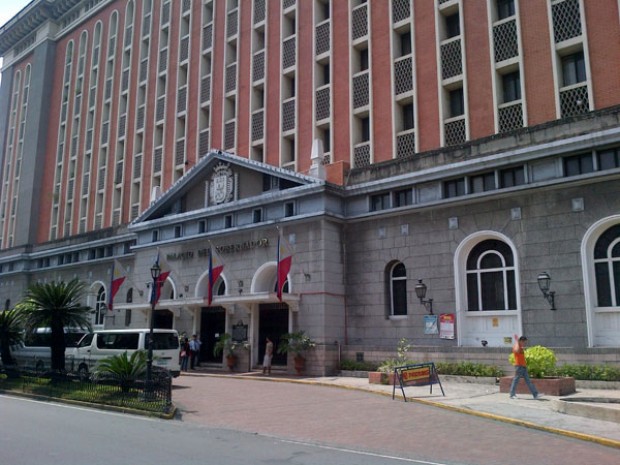
Comelec office. FILE PHOTO
Just how do you regulate the use of social media in election campaigns? Should it be regulated at all?
With the increasing use of Facebook, Twitter, personal blogs and video-sharing sites to promote candidates for the 2016 elections, the Commission on Elections (Comelec) is faced with tough questions as it studies the possibility of regulating social media campaigning, “without violating the netizens’ freedom of expression.”
“We’ve been looking at social media trends… and studying the possibility of coming out with separate rules apart from the Fair Election Act rules and regulations,” said Comelec spokesperson James Jimenez.
In 2013, the policy was basically not to regulate social media, the Comelec official said.
“Your social media space (was) your own space (and) candidates (were) allowed to maintain their own Facebook pages. We had regulations not for limiting the use of social media but for online campaign spending,” Jimenez said.
Largely free
“The question is, should we regulate the social media? Remember, one of the benefits of social media is it’s largely free, and not expensive (at all). So if ever regulation (is imposed), it would be to control spending in election (campaigns),” Jimenez told reporters.
Should they come up with separate rules, the poll body would be cautious about violating the netizens’ freedom of expression, he said, adding that the focus would be on how much candidates spend to produce the videos or materials posted on social media.
More than ad space online, the Comelec is eyeing possible rules on campaigns aired and published on video-sharing sites, blogs and other social media platforms, Jimenez said.
“For instance, a candidate posted a video and it gets over a million likes. What are you going to do, charge him for a million likes? No. But what we might look at is how much the candidate spent in making that video. Distribution is free, but making the video with, like, donated talent, that’s reportable. How much was spent in getting that in digital format? That’s reportable. We have to calibrate our approach to social media without violating freedom of speech,” he explained.
The Comelec acknowledged that social media could play a significant role in next year’s elections.
Game changer
“Will it be a game changer? That’s what we have been predicting for the longest time. In fact since 2010, we have been saying that social media will play an important role in the elections, (as it did) in 2013. To a certain extent, we saw an increase in the interest level of ordinary people in the process, because (social media) makes everything more accessible,” he said.
“But it will be in the 2016 elections that we’ll really see its impact because more than 20 million youths will participate in the elections. And most of them are wired, they’re connected (and have access to) social media. I think we are approaching the point where voting becomes a communal experience and that’s because of social media,” Jimenez said.
“It remains to be seen whether or not activities on social media will translate to actual votes. Because no matter how much (something) is talked about in the social media, there is still a need to activate the voters. No matter how many one likes posts on Facebook or how many times one retweets on Twitter, if he doesn’t vote, those social media activities will be useless,” the Comelec official said.